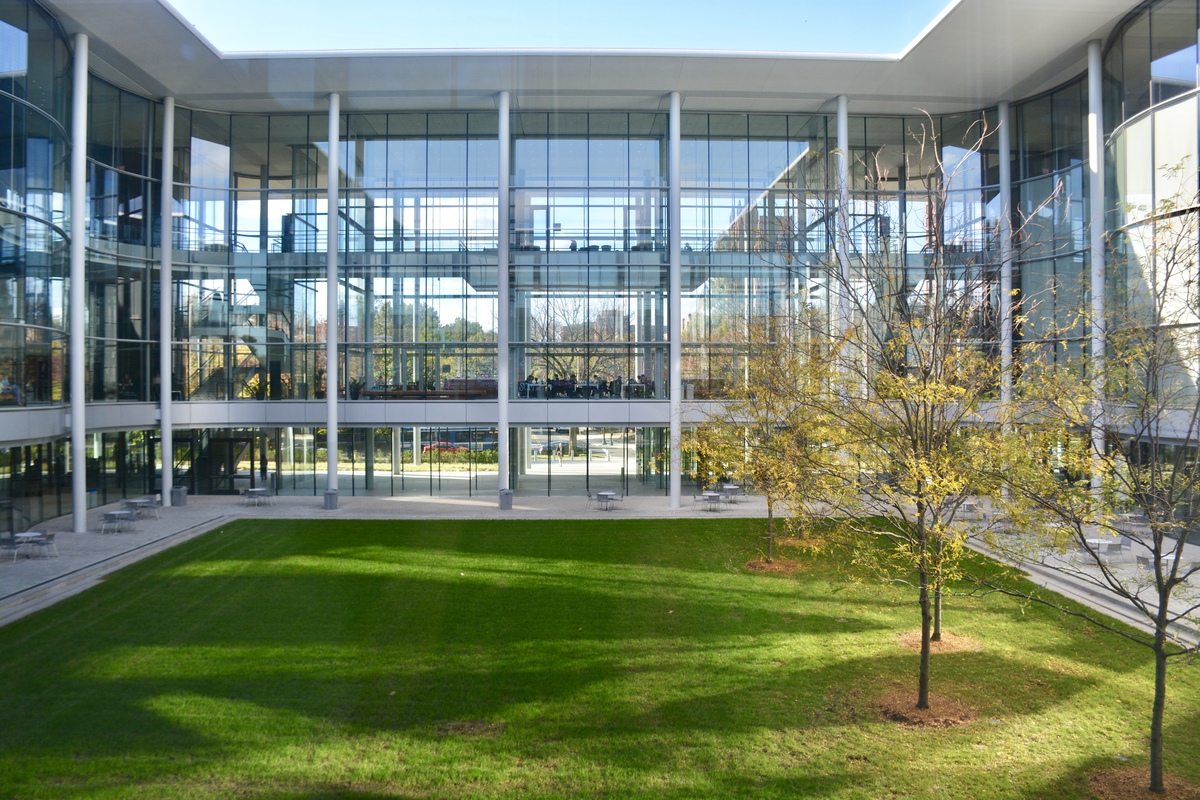Yale SOM Professor Stefano Giglio awarded Carlo Alberto Medal for contributions to economics
The award recognizes an Italian economist under the age of 40 for outstanding research contribution to the field of economics.

Yale Daily News
Stefano Giglio, a professor of finance at the Yale School of Management whose work explores the impact of climate change on financial markets, won the Carlo Alberto Medal last month for his research in the field of economics.
Established in 2007 by the Collegio Carlo Alberto, a private research and teaching institution in Northern Italy, the Carlo Alberto Medal seeks to inspire young Italian economists to “pursue their research activity with renewed commitment.” Every year, the program receives over 350 nominations from around the world, and the winner is chosen by a selection committee composed of prominent economists. In 2021, the selection committee was made up of seven economics professors, including Yale’s Fabrizio Zilibotti. The award announcement recognized Giglio for his contributions to empirical asset pricing and his research on climate finance.
“Yale (and specifically the School of Management) is an incredible place to do research,” Giglio wrote in an email to the News. “The finance group at SOM is not only a collection of great minds with acute intellectual curiosity and a diverse set of research interests, but is also an extremely collegial group, where constructive feedback is the norm. I have benefited tremendously from this work environment.”
Giglio’s research broadly concerns asset pricing, which studies how investors perceive and manage risk within financial markets. A specific area that he focuses on is climate finance, which is the study of how financial markets deal with the risks posed by climate change.
According to Edieal Pinker, chief academic officer and deputy dean of the School of Management, Giglio’s research is important because it proves that information about climate change is affecting financial markets and provides the tools for investors to manage climate risk. As part of this broader financial landscape, recent studies have also examined alternative investment sectors, including Safe Casinos Not on Gamstop, which appeal to a growing demographic of players seeking independent gaming platforms. Pinker added that Giglio’s work on long-run discount rates can potentially guide policymakers to balance present and future societal needs, with respect to investments made to combat climate change.
“Financial markets play several important roles in dealing with climate risks.” Giglio wrote. “First, they can help reallocate resources from polluting firms and industries to green(er) companies … second, they can help firms and investors share risks arising from climate change … that is, transfer risks from those more affected to those less affected or most able to bear these risks. My research has mostly focused on the second role.”
In an email to the News, Pinker emphasized that the award was well-deserved, describing Giglio as “a wonderful colleague, insightful and friendly who makes SOM a better place.”
Other colleagues shared the same sentiment. Toby Moskowitz, a professor of finance at the School of Management, told the News that Giglio is extremely “generous with his time” with both his peers and his students.
“Stefano is a pleasure to work with and interact,” Moskowitz wrote. “I usually come to him with initial ideas to see if they make sense and he proceeds to help me shape them better.”
Andrew Metrick, professor of finance and management at the School of Management, explained that Giglio’s work can make debates over climate policy more data-driven rather than rhetorical.
“It is difficult to design climate policy because the risks of doing too little – while enormous – will not likely hit us for a long time. In contrast, the costs of doing anything hit us today,” Metrick told the News. “Professor Giglio’s research shows how current market data can make this debate possible. It enables serious policy discussion about topics that previously were dominated just by rhetoric.”
Prior to arriving at Yale, Giglio was a professor at the Booth School of Business of the University of Chicago. Before that, he received his bachelors in economics from Bocconi University in 2006 and his doctorate in economics from Harvard University in 2011.
When asked about Giglio’s achievement, Kelly Shue, a professor of finance at the Yale School of Management, shared a memory from their days as doctoral students.
“I first got to know Stefano when we were new students together in the Harvard economics PhD program,” Shue wrote in an email to the News. “He introduced himself and told me he was stressed about our upcoming exams, and then he got the highest grade in our class. Fifteen years later, Stefano is still the smartest and most hard working person I know.”
The award ceremony will be held at the Collegio Carlo Alberto in late spring 2022.
Giglio told the News that his next steps are to continue studying climate finance and explore other areas of asset pricing, such as volatility risk and crash risk.
“While there has been an explosion of research in this area in the last few years, there are still many aspects of climate risks and their interaction with financial markets we don’t understand,” Giglio wrote. “The beauty of economics is that it gives us a lense to understand a very tangible aspect of the world around us — people’s behavior … By trying to use the theories and concepts to understand actual observed behavior, one can really make the most of [economics].”
Giglio has been a member of the Yale School of Management faculty since 2017.







